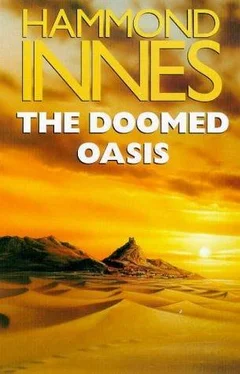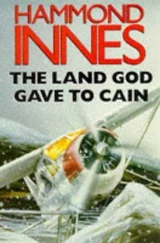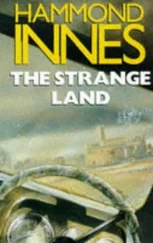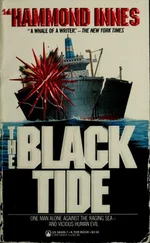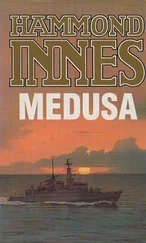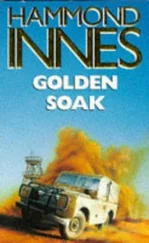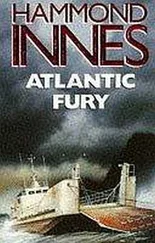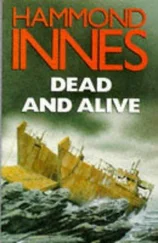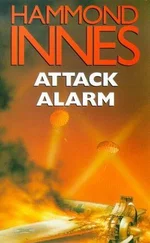Hammond Innes - The Doomed Oasis
Здесь есть возможность читать онлайн «Hammond Innes - The Doomed Oasis» весь текст электронной книги совершенно бесплатно (целиком полную версию без сокращений). В некоторых случаях можно слушать аудио, скачать через торрент в формате fb2 и присутствует краткое содержание. Жанр: Прочие приключения, на английском языке. Описание произведения, (предисловие) а так же отзывы посетителей доступны на портале библиотеки ЛибКат.
- Название:The Doomed Oasis
- Автор:
- Жанр:
- Год:неизвестен
- ISBN:нет данных
- Рейтинг книги:5 / 5. Голосов: 2
-
Избранное:Добавить в избранное
- Отзывы:
-
Ваша оценка:
- 100
- 1
- 2
- 3
- 4
- 5
The Doomed Oasis: краткое содержание, описание и аннотация
Предлагаем к чтению аннотацию, описание, краткое содержание или предисловие (зависит от того, что написал сам автор книги «The Doomed Oasis»). Если вы не нашли необходимую информацию о книге — напишите в комментариях, мы постараемся отыскать её.
The Doomed Oasis — читать онлайн бесплатно полную книгу (весь текст) целиком
Ниже представлен текст книги, разбитый по страницам. Система сохранения места последней прочитанной страницы, позволяет с удобством читать онлайн бесплатно книгу «The Doomed Oasis», без необходимости каждый раз заново искать на чём Вы остановились. Поставьте закладку, и сможете в любой момент перейти на страницу, на которой закончили чтение.
Интервал:
Закладка:
He left then and I was alone with my three Arab guards. The child had stopped crying. There was no sound of women’s voices. The palace slept, and sitting there, thinking about David, convinced now that he was still alive, I gradually became resigned to the fact that I wasn’t going to get away in the plane that morning.
Khalid was gone about ten minutes. When he came back his face was pale, his manner subdued. ‘I tell my father I am going to Dhaid to gather more men.’
‘Did you tell him about Whitaker?’
‘No, I don’t tell him. And I don’t tell him about David either — not yet. Is very much disturbed already. Come!’
‘Is David at Dhaid?’ I asked.
‘No. But Sheikh Hassa holds that village for us. He will give us camels, and perhaps Salim bin Gharuf is there. I don’t know. We have to hurry.’ He gave an order to my escort and I was hustled out of the palace into the great courtyard where his Land-Rover stood. The escort piled in behind us and as we drove down into the date gardens it was difficult to believe that the people of this peaceful place were threatened with extinction; that they had been so roused that night that they’d set fire to an oil company plane. The breeze had died and the whole world was still. Nothing moved. And when we ran out into the desert beyond the palms, it was into a dead, white world, for the moon was high now. We headed south, Khalid driving the Land-Rover flat out, bucking the soft sand patches, eating up the flat gravel stretches at a tearing speed.
We were held up for a time by a choked petrol feed and the first grey light of dawn was taking the brightness from the moon when a needle-tip of latticed steel showed above the grey whale-back of a dune. It was Whitaker’s oil rig, a mobile outfit — the sort they call an ‘A’ rig, truck and drill combined. It stood up out of the desert floor like a steel spear planted in the sand as a challenge to the vast wastes of emptiness that surrounded it. Beside it was a barasti, two Bedou tents and some tattered wisps of black cloth that acted as windbreaks.
As we neared it we heard the sound of the diesel, could see the Arab drilling crew busy drawing pipe. Other Arabs were loading a second truck with lengths of pipe. Early though it was the place was humming with activity, and when Khalid stopped and questioned them, he learned that Yousif had arrived just over an hour before with orders for them to prepare to move.
Whitaker had made his decision. He was moving his rig to the Hadd border and up in my empty turret room there were doubtless letters waiting for me to take to Bahrain. ‘Is crazy!’ Khalid cried, jumping back into the driving seat. ‘Why does he do this now? He should do it before or not at all.’ He drove on then, passing close below the derrick. It looked old and battered, the metal bare of paint and burnished bright in places by the drifting sands. The derrick man was up aloft stacking pipe, his loin cloth smeared with oil, his turbanned head a bundle of cloth against the paling sky.
Dawn was coming swiftly now and beyond the shallow slope of a dune I saw the tinsel-gleam of Erkhard’s aircraft. It stood at the far end of a cleared stretch of gravel and the sight of it brought back to me my urge to escape from the desert. But when I demanded to be taken to it, Khalid took no notice except to give an order to the Arabs in the back. I reached for the ignition key. A brown hand seized my arm, another gripped my shoulders and I was held pinned to my seat while we plunged at more than thirty miles an hour into a world of small dunes, and the plane vanished beyond my reach.
After that the going was very bad for mile after weary mile. And when finally we came out of the little dune country, it was on to a gravel plain ribbed by crumbling limestone outcrops. A few dried-up herbs, brittle as dead twigs, bore witness to the fact that it had rained there once, many years ago. The land was dry and dead, flat as a pan, and as dawn broke and the sun came up, I lost all sense of horizon, for the whitish surface reflected the glare in an endless mirage.
All the way from the rig the going was bad. We had more trouble with the petrol feed and it was past midday before we caught sight of the low hill on which Dhaid stood. It throbbed in the heat haze, looking like the back of a stranded whale surrounded by pools of water. The crumbling mud walls of the village were merged in colour and substance with the crumbling rock on which they were built, so that it wasn’t until we stopped at the foot of a well-worn camel track that I could make out the shape of the buildings. There was a single-arched gateway, and we had barely started up the track on foot when the villagers poured out of it and rushed upon us, leaping from rock to rock, shouting and brandishing their weapons.
Khalid showed no alarm, walking steadily forward, his gait, his whole bearing suddenly full of dignity. And then they were upon us, engulfing us; a wild, ragamuffin lot, teeth and eyes flashing, dark sinewy hands stretched out to us in the clasp of friendship. They were dirty, dusty-looking men, some with no more than a loin cloth, and they looked dangerous with their black hair and bearded faces and their animal exuberance; and yet the warmth of that unexpected welcome was such after that empty, gruelling drive that I greeted them like brothers, their horny, calloused hands gripped around my wrists. It was the beginning of my acceptance of desert life.
Sheikh Hassa followed behind the rest of the village, picking his way sedately over the rock, his gun-bearer just ahead of him carrying his new BSA rifle which was his pride and joy. He was a short, tough-looking man with a shaggy black beard that gave him an almost piratical appearance. He greeted Khalid with deference, touching his hand with his fingers, carrying them to his lips and to his heart. ‘Faddal.’ And we went up the track and through the gateway into the village. A crowded square pulsating in the heat, a cool, darkened room spread with a rug, camel milk in bowls still warm from the beast’s udder, and talk — endless, endless talk. I leaned back on the cushions, my eyelids falling, my head nodding. The buzz of flies. The buzz of talk. Not even coffee could keep me awake.
And then Khalid called to me and introduced me to a sinewy old man who stood half-naked in the gloom, a filthy loin cloth round his waist and his headcloth wound in a great pile above his greying locks so that he looked top-heavy. This was Salim bin Gharuf. ‘He is of the Duru,’ Khalid said, ‘and he knows the place.’ I asked him what place, but he ignored that. ‘Is better now that you wear these please.’ He produced a bundle of Bedou clothing, holding them out to me.
They were cast-off clothes and none too clean. ‘Is this really necessary?’ I demanded.
He nodded emphatically. ‘Is better you look like one of us now.’
‘Why? Where are we going?’
‘I tell you later. Not here. You will change please.’ He helped me off with my European clothes and wound the loin cloth round my waist; the long, dusty robe, the length of cloth twisted about my head, sandals, too, and an old brass-hiked knife for my belt. Sheikh Hassa watched me critically. I think the clothes were his. Men came and peered and the crowded room resounded with their mirth.
Khalid sensed my annoyance. ‘They don’t mean any disrespect, sir. And you are going where no faranji has been before — save David.’
It was meant to mollify, but all it did was rouse my curiosity again. ‘Well, if you won’t tell me where he is,’ I said, ‘at least tell me how long it will take us to reach him.’
‘A day and then half a day if we travel fast. Perhaps two days. I don’t know. There is possibility of a storm.’
Читать дальшеИнтервал:
Закладка:
Похожие книги на «The Doomed Oasis»
Представляем Вашему вниманию похожие книги на «The Doomed Oasis» списком для выбора. Мы отобрали схожую по названию и смыслу литературу в надежде предоставить читателям больше вариантов отыскать новые, интересные, ещё непрочитанные произведения.
Обсуждение, отзывы о книге «The Doomed Oasis» и просто собственные мнения читателей. Оставьте ваши комментарии, напишите, что Вы думаете о произведении, его смысле или главных героях. Укажите что конкретно понравилось, а что нет, и почему Вы так считаете.
